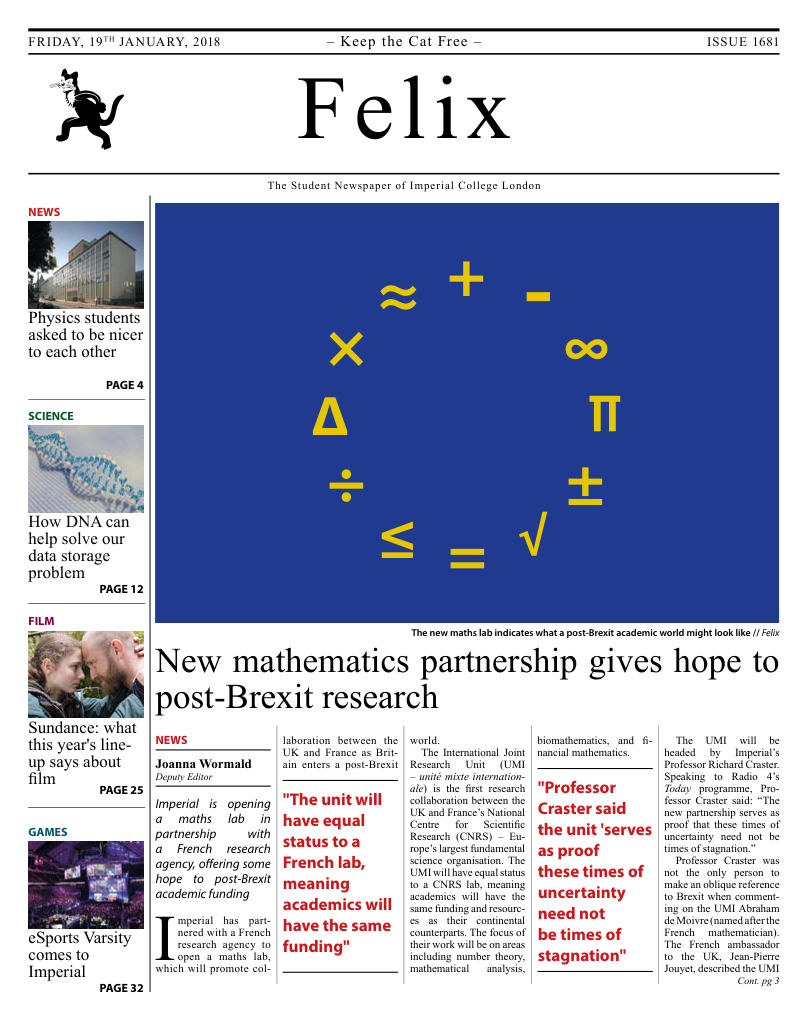Innovation will save us from an economic death
We can return to long-term economic prosperity if we take a few lessons from the laws of thermodynamics.

The global economy is stalling because of a lack of innovation. Beyond computers, there is no longer a revolutionary mentality towards technology. You can see it in our psychology: we call ourselves the developed world, as if all great strides have already been made. Granted we depict our visions of the future in Hollywood movies, but – beyond improved CGI – these visions largely haven’t changed.
If you look beyond the Internet and beyond superficial design, we have done little more than incrementally improve in recent decades. Aeroplanes are still largely recognisable from their 1960s blueprints, and while energy has flirted with both nuclear and renewables it remains dominated by fossil fuels. This is because well-established sectors are typically concentrated with a few large companies.
These behemoths, despite what their recruitment marketing may tell you, prefer incremental improvements rather than industry-destabilising innovations. These companies are risk-averse – they have shareholders to please and investing in innovation carries risk, particularly in abstract and uncertain areas.
Economics borrows its mathematical foundations from thermodynamics and so a simple thermodynamic analogy should serve to illustrate how this lack of innovation is leading to staleness: In thermodynamics, where you have temperature differences, heat will flow from the hotter object to the colder object until they reach equilibrium. To apply this to economics, we can simply refer to technology differences; hot companies are technologically-advanced whereas cold companies are lagging. Heat transfer occurs as the colder company imitates away all the hotter company’s technological breakthroughs until we reach equilibrium.
“Beyond computers, there is no longer a revolutionary mentality towards technology”
The end state in thermodynamics is called the heat death of the universe, when the whole universe is at the same temperature and there is no free energy to be exploited. Similarly, under this analogy, an economic heat death would be a state of perfect competition, a market made up of undifferentiated companies with undifferentiated products competing on price.
Profits in a perfectly competitive market are minimal: airlines on average made a profit of $0.37 per $178 ticket in 2012. With such low profits, there is little money to reinvest into the company. Funding gets cut for research and development projects, while improvements to services and facilities start getting cut too. To make higher profits and avoid economic sterility, you must dominate an industry.
There are two ways to dominate a market through innovation. The first is a Google: produce a product magnitudes better than your rivals as Google did with their search engine. The second is an Amazon: create an entirely new market, as Amazon did with online retail. What both have in common is disruption; while not essential, it is perhaps a reason why innovation has been limited to internet-based start-ups. Once on top though and in a dominant position, it becomes even more important to keep on innovating, otherwise all your advances will be imitated away.
Industries such as management consulting and investment banking offer great value in well-oiled economies but they rely on technological breakthroughs for their survival. In the absence of advances, they are merely catalysts to this state of equilibrium, this economic heat death. Consultancies often work to restructure a company, streamlining it to reduce costs, make savings, and unlock profits. There is however a finite limit to this process and gains become increasingly marginal without technological innovation.
“For long-term prosperity we need innovators, creators, and entrepeneurs – people with a revolutionary mentality”
Investment bankers make money off bets, predicting when a company is under- or over-valued. In this eventual state of perfect competition, all companies are undifferentiated and correctly valued, meaning there is no more money to be made. To start unlocking money again, there needs to be technological breakthroughs that destabilise an industry.
Though it may be tempting in times of economic struggle to focus on short-term livelihoods by securing positions in these or other long-established industries, it does not guarantee long-term prosperity. For that we need innovators, creators and entrepreneurs, people with a revolutionary mentality, those that see the future as being created, not imagined. This is certainly a riskier pathway as you must forge it on your own – recreating what someone else has already done will earn you nothing. With risk, however, comes reward and those that are successful are often more handsomely rewarded for their boldness.
Today’s face of innovation is arguably Elon Musk: his companies include Tesla, SpaceX, SolarCity, The Boring Company, Neuralink, Hyperloop, and more. Though his cult following may present him as divinely blessed, the success of these companies is instead enabled by thousands of innovators. If there is something to be learnt from Elon Musk, it is that his vast number of projects are evidence that opportunities to innovate still exist.
If we are to reinject dynamism into our economy, then we need to be bold and start taking risks in our career choices. At Imperial we have great scientific foundations and exposure to cutting-edge technology, putting us in prime position to be the innovators and the entrepreneurs of the future. So, let’s be bold and let’s be ambitious!









